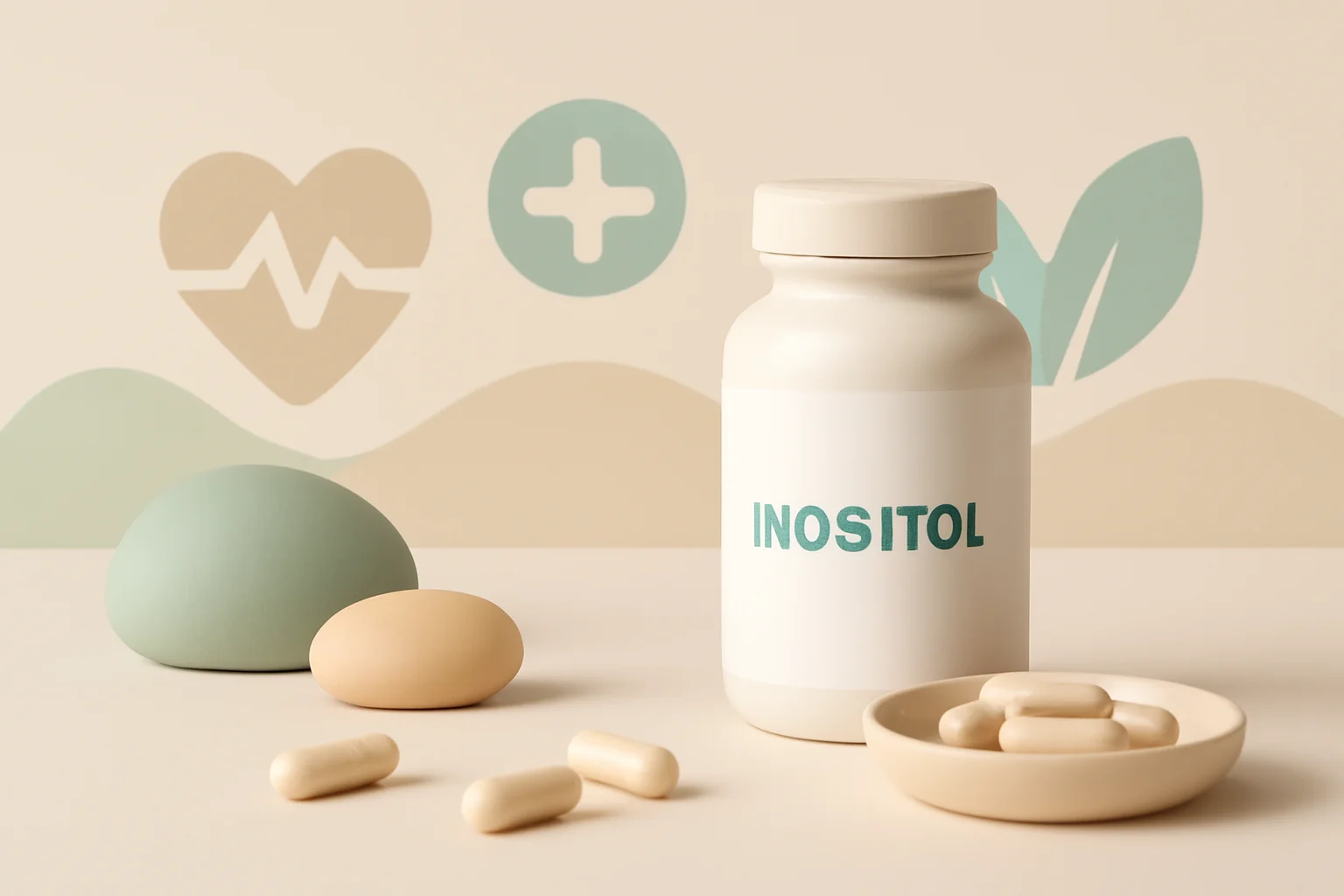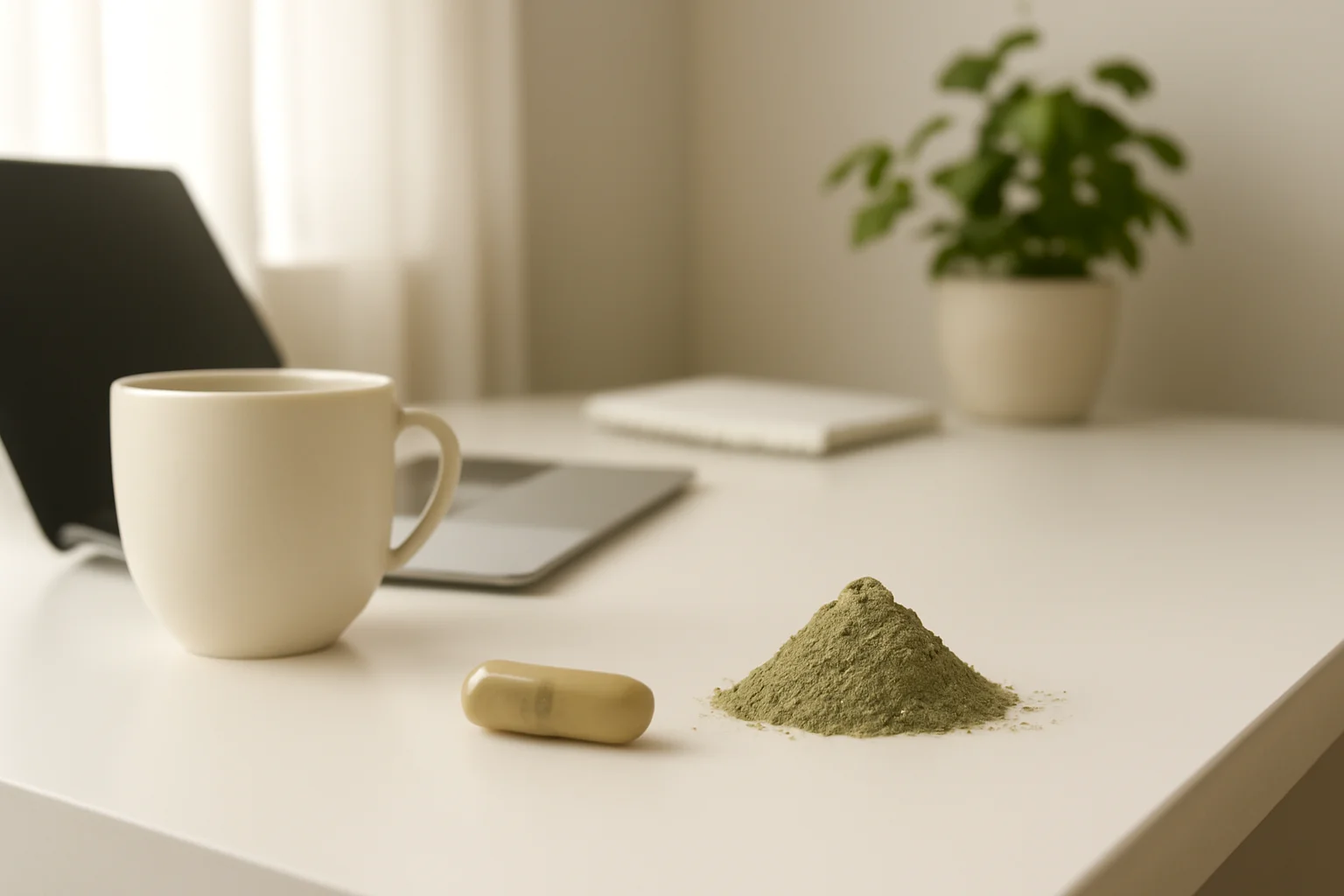
The effects of inositol: health benefits and applications
Inositol is a natural compound that belongs to the B-vitamin group and is essential for cellular function. It plays a role in glucose metabolism in the body and is involved in various biological processes. Inositol not only affects the functioning of cells but also impacts hormonal balance and the nervous system. Research has discovered that different forms of inositol may be important for mental health and physical well-being.
In modern nutrition, inositol is receiving increasing attention, especially among women struggling with PCOS (polycystic ovary syndrome). Many people seek to incorporate the compound naturally into their diets to support hormonal balance, reduce stress, and improve mood. However, it is advisable to thoroughly research its effects and potential benefits before taking inositol to make an informed decision.
The Role of Inositol in Hormonal Balance
Inositol plays a particularly important role in maintaining hormonal balance. It has a significant impact on the regulation of female hormones such as estrogen and progesterone. For women diagnosed with PCOS, inositol supplements can help restore hormonal balance. Research has shown that inositol can reduce insulin resistance, which is often associated with PCOS. This effect is particularly important, as insulin resistance can lead to weight gain, acne, and menstrual disorders.
The effects of inositol are not limited to female hormones; it can also positively influence hormonal balance in men. Studies suggest that inositol supplements can improve sperm quality and motility, thereby contributing to fertility support. Therefore, inositol may be beneficial not only for women but also for men in maintaining hormonal balance.
Additionally, inositol plays a role in the functioning of neurotransmitters such as serotonin and dopamine, which are crucial for mood and mental health. Adequate levels of inositol may contribute to mood stabilization and help in the treatment of anxiety and depression. Maintaining hormonal balance is essential not only for physical health but also for mental well-being.
The Impact of Inositol on Mental Health
Inositol is of significant importance for mental health. Numerous studies have demonstrated that this compound can improve mood, reduce anxiety, and support the treatment of depression. Research indicates that inositol may contribute to the production of neurotransmitters such as serotonin, which play a key role in mood regulation.
Taking inositol may be particularly beneficial for those struggling with anxiety. Experts suggest that the compound can reduce anxiety symptoms, thereby improving overall well-being and quality of life. Users of inositol supplements often report a decrease in anxiety, contributing to a calmer and more balanced life.
Inositol has also shown promising results in the treatment of depression. Studies suggest that the compound may help alleviate depressive states and enhance therapeutic effects when used alongside antidepressant medications. Thus, inositol could be a natural alternative to support mental health, which can be integrated into treatment plans alongside medications.
However, it is important to note that the effects of inositol may vary from person to person, and not everyone reacts the same way to supplements. For optimal results in mental health, it is recommended to consult a professional.
Sources of Inositol and Proper Dosage
Inositol is naturally found in various foods, making it easy to incorporate into the diet. Major sources include whole grains, legumes, nuts, seeds, and vegetables. Among fruits, watermelon, oranges, and kiwi are also rich in inositol. A balanced diet can help maintain adequate inositol levels, but the use of supplements is becoming increasingly popular.
Inositol supplements are available in various forms, such as powder, capsules, or tablets. Proper dosage is important, as excessive intake can lead to side effects. A general recommendation is to consume 500-2000 mg of inositol daily; however, the exact amount may vary from person to person. It is advisable to consult a professional to determine the optimal dosage.
Before taking inositol, it is important to consider existing health conditions and potential interactions with medications. Inositol is generally considered safe, but as with any supplement, it is wise to follow medical recommendations and dosage guidelines.
Potential Side Effects of Inositol Supplements
Although inositol is generally regarded as safe, as with any dietary supplement, side effects may occur. The most common side effects include gastrointestinal discomfort, such as bloating, diarrhea, or nausea. These symptoms are usually mild and temporary; however, if someone experiences more severe symptoms, it is advisable to consult a doctor.
High doses of inositol may lead to a decrease in blood sugar levels, which can be particularly important for individuals with diabetes. Therefore, those with diabetes should pay special attention to taking inositol and ideally do so under medical supervision. Additionally, inositol may affect hormonal balance, so individuals with hormonal disorders should also consult a doctor before taking supplements.
Before taking any dietary supplement, it is crucial for individuals to be informed about potential side effects and to consider their health status. Medical advice can help in making the right decision.
Warning: This article does not constitute medical advice. Always consult a physician for health issues and follow their recommendations.

